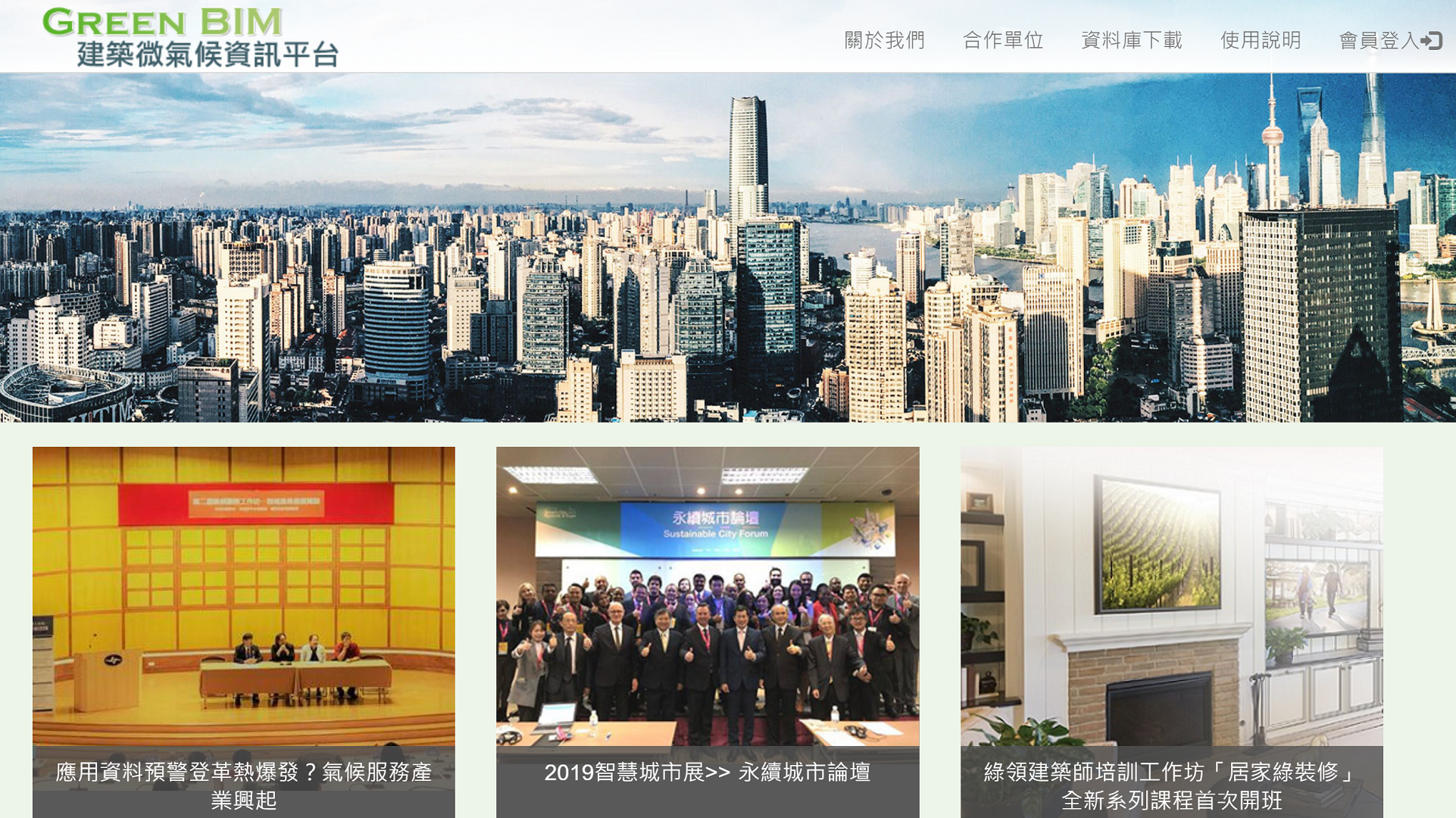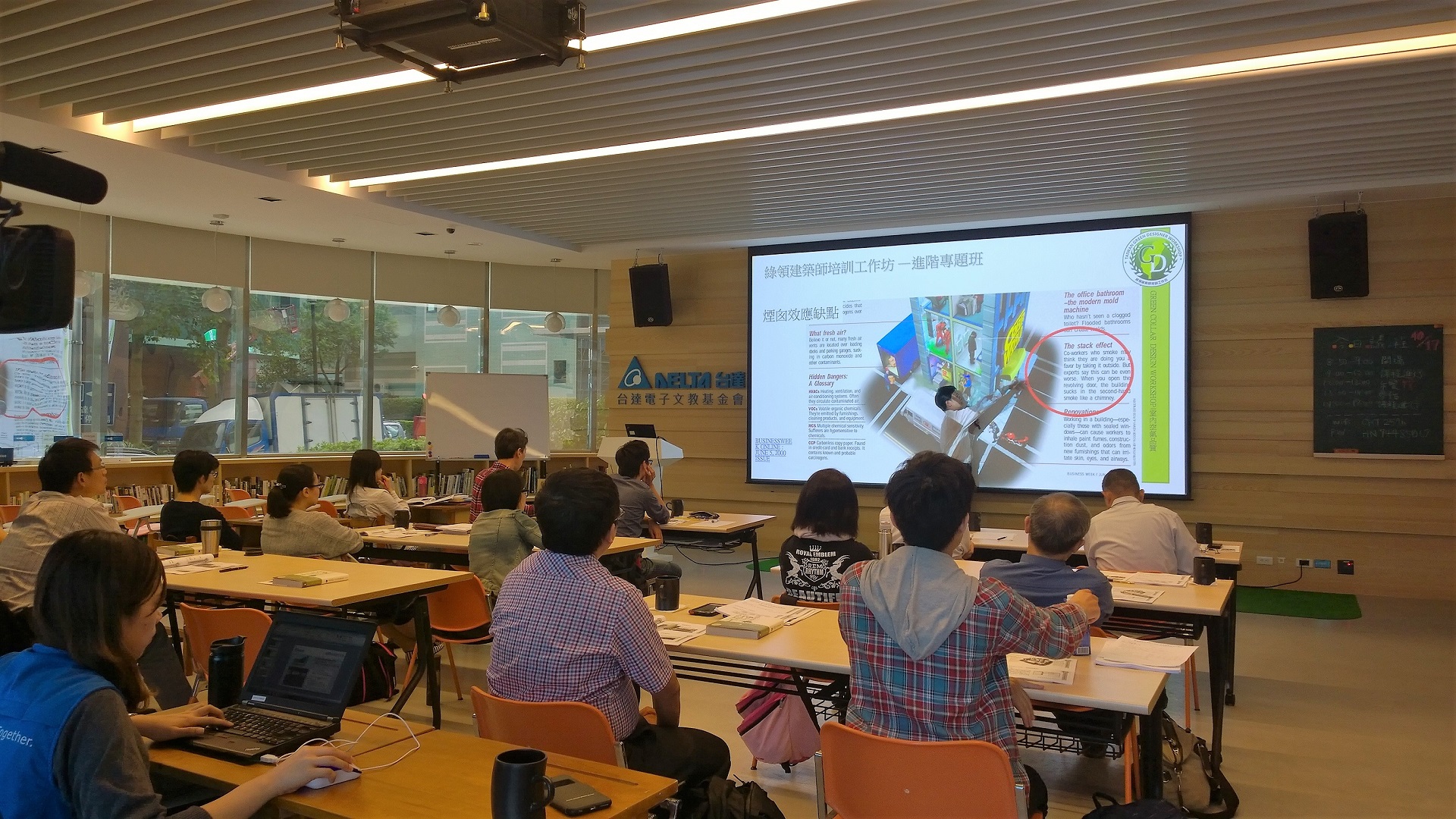
Duration:2017 until now Updated:2025/12/29
Delta Electronics Foundation's long-term engagement with climate change issues dates back to 2009, when it participated in the post-Typhoon Morakot reconstruction of Namasia Mincyuan Elementary School, Kaohsiung, which later became Taiwan's first net-zero energy campus. This experience highlighted the critical role of accurate and actionable climate information in both energy-efficient building design and long-term operational performance, leading the Foundation to continue exploring innovative approaches to building decarbonization through the Green BIM Microclimate Project, which applies climate and weather data to support energy-efficient design and the operation of energy-intensive systems such as air conditioning.
2017
Delta together with the Central Weather Administration (CWA), Taiwan Architecture & Building Center (TABC), and International Climate Development Institute (ICDI), developed the "Green BIM Microclimate Data Platform", to provide the third Typical meteorological year (TMY3) information collected from weather stations. It converted the historical weather information of the densely populated areas in Taiwan for nearly 20 years in the past (1998-2016) into the weather parameters and data formats compatible with Building Information Modeling (BIM), further allowing architects to build more energy-efficient buildings. In the first phase of the project, we accomplished the data format establishment of TMY3 information from the 13 stations that cover the major metropolitan areas in Taiwan, and parameters included sunlight, wind speed, temperature, humidity, precipitation, etc. As of 2025, the platform has accumulated 1,816 registered users and 39,504 total page views, and has been widely applied in both educational and professional settings to support energy-efficient building design.
2020
In the second phase of the project, the data platform was updated to double its data coverage from the original 13 meteorological stations to 26. The expansion makes meteorological data in each county and city of Taiwan available online and helps architects create energy-efficient building designs with higher accuracy. In addition, we collaborated with the National Museum of Marine Science & Technology (NMMST) to manage water-cooled chiller systems with weather forecast data. The daily temperature and humidity are the main determinants of when different types of water-cooled chillers should be activated and closed. Overall, the data application makes electricity consumption be decrease by 10% during peak hours of summer days and potentially 30% in spring and autumn.
2021-2022
Delta broadened the data application in public and commercial buildings of different counties and cities. In cooperation with New Taipei City, we achieved almost a 10% reduction in energy consumption in government offices with weather forecast information. In this case, with well-equipped sensors in the building, we used the thermal comfort model and the weather forecast of the day to optimize the air-conditioning temperature. Coupled with science-based models, such as the CBE thermal comfort tool and PMV value, we also ensure the maintenance of indoor comfort via temperature adjustment. The case proved the possibility of achieving energy savings at a very low cost through air-conditioning temperature control and weather forecast data without replacing any energy-consuming equipment or upgrading the building envelope. This case study has been documented academically and published in Building and Environment, a reputable international journal in 2022. (links)
2023-2025
The Foundation enhanced the Green BIM Microclimate Data Platform with advanced weather services, including ASHRAE climate design conditions, customized sun path analysis, hourly rainfall alerts, renewable energy evaluation and monitoring, and 3-day weather forecasts. These enhancements enabled weather data to support building design, operation, and retrofit across the full lifecycle, further strengthening decarbonization outcomes.
In parallel, weather-based energy optimization was extended to industrial facilities. At Delta Electronics Chungli Plant 5, weather forecasts were integrated into air-conditioning and ice storage system scheduling to dynamically control water-cooled chillers under varying climatic conditions. Between July 2023 and June 2024, the optimized strategy reduced electricity consumption by 213,395 kWh, cut carbon emissions by 105.4 metric tons, achieved an energy savings rate of 9.67%, and generated approximately USD 27,100 in cost savings. The results were published in Energy and Buildings (links). In 2025, the approach was further extended to Delta's Taoyuan Plant 5 to support comfort-oriented energy savings and optimized ice storage system operation.

In 2012, the Foundation decided to localize the teaching materials for elementary schools and thus designed the Delta Energy Education Program (DEEP) to bring energy education to the existing education system.
To accelerate the adoption of green building designs, Delta has participated in the construction, completion, and operation of multiple green buildings on campuses through donations and management.

Since 2020, together with the USGBC and the TGCA, the Foundation has been offering Mandarin courses to introduce the LEED certification, the most widely used green building rating system developed by USGBC.